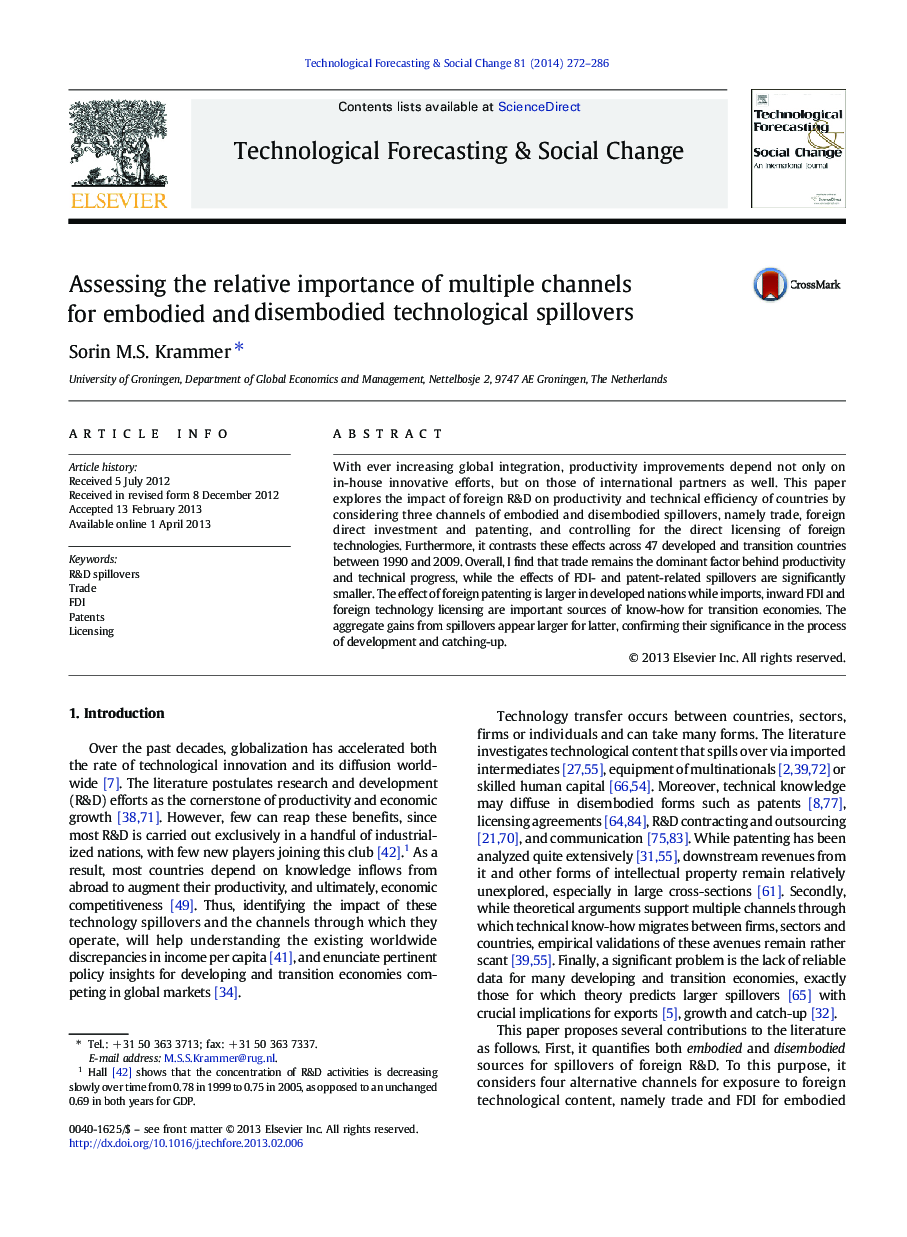| Article ID | Journal | Published Year | Pages | File Type |
|---|---|---|---|---|
| 896540 | Technological Forecasting and Social Change | 2014 | 15 Pages |
With ever increasing global integration, productivity improvements depend not only on in-house innovative efforts, but on those of international partners as well. This paper explores the impact of foreign R&D on productivity and technical efficiency of countries by considering three channels of embodied and disembodied spillovers, namely trade, foreign direct investment and patenting, and controlling for the direct licensing of foreign technologies. Furthermore, it contrasts these effects across 47 developed and transition countries between 1990 and 2009. Overall, I find that trade remains the dominant factor behind productivity and technical progress, while the effects of FDI- and patent-related spillovers are significantly smaller. The effect of foreign patenting is larger in developed nations while imports, inward FDI and foreign technology licensing are important sources of know-how for transition economies. The aggregate gains from spillovers appear larger for latter, confirming their significance in the process of development and catching-up.
► I examine technological spillovers in 47 countries between 1990 and 2009. ► Both embodied and disembodied spillovers are considered. ► Import of goods is the paramount channel for positive spillovers. ► The effect of international patenting is larger in developed nations. ► Foreign direct investment and licensing are important for transition countries.
